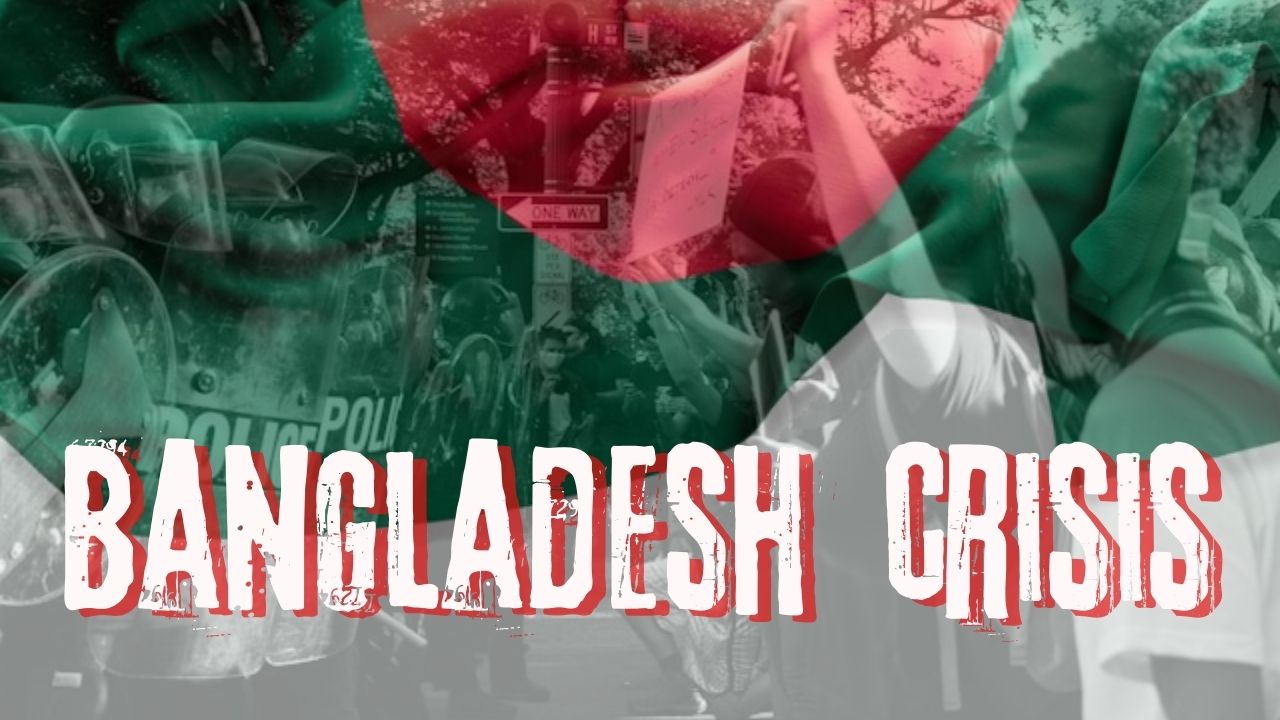Bangladesh Crisis 2024: Distressing Details & the Essential Insights

Bangladesh is facing significant unrest as student protests against a reinstated job quota system have spiraled into a nationwide crisis. The government’s response, involving curfews and internet blackouts, has drawn international condemnation. This article explores the historical context, recent developments, and the future implications of this Bangladesh crisis.
Table of Contents
The Quota Controversy
The government’s reinstatement of a job quota system, which reserves positions for certain groups, has sparked widespread protests. This system, originally intended to ensure fair employment opportunities, has been criticized for perpetuating inequality and corruption. Understanding its origins and the reasons behind its reinstatement is crucial to grasp the intensity of the current unrest.
Government Response and Human Rights
The government’s response has been severe, including curfews, internet blackouts, and deploying the army with shoot-on-sight orders. The UN and human rights organizations have condemned these actions, calling for accountability and the restoration of internet access. “The large number of unlawful killings, possible enforced disappearances, and torture are alarming,” stated UN experts (OHCHR). The crackdown has restricted news coverage and access to information, exacerbating public anger.
Sheikh Hasina Wajid’s Role
Prime Minister Sheikh Hasina Wajid, a dominant figure in the country’s politics, has faced criticism for her handling of the recent Bangladesh crisis. Known for her strong leadership, Hasina’s tenure has been marked by significant economic growth and development. However, her administration’s recent actions have sparked controversy. Critics argue that the government’s harsh measures reflect an authoritarian tendency, undermining democratic values and human rights. Hasina’s leadership is now under scrutiny, as both domestic and international observers call for more transparent and accountable governance.
Latest Development: Resignation and Escape
In a dramatic turn of events, Sheikh Hasina Wajid has resigned and reportedly fled the country amidst escalating pressure from both domestic protests and international criticism. This unexpected development has added a new layer of complexity to the crisis. The resignation has left a power vacuum, raising concerns about the immediate future of Bangladesh’s political landscape and stability.
Economic and Political Impact
The Bangladesh crisis has not only affected lives but also battered Bangladesh’s economy. Businesses have closed, and daily activities have been severely disrupted. The long-term political implications are equally concerning, with the government’s heavy-handed approach eroding public trust. Experts warn that without genuine accountability and reforms, the unrest could lead to prolonged instability.
Future Implications
The future of Bangladesh hangs in the balance. The government’s actions have drawn international scrutiny, and its ability to manage the crisis will have lasting effects on its political stability and economic health. Ensuring transparency, restoring internet access, and addressing the root causes of the protests are essential steps toward regaining public trust.
My Two Cents on the Bangladesh Crisis
With Sheikh Hasina Wajid’s resignation and escape, Bangladesh faces an uncertain future. Her departure highlights the deep political crisis and the urgent need for new, stable leadership. This moment is pivotal. The government must prioritize dialogue, transparency, and human rights to rebuild trust. Addressing the protesters’ concerns with empathy can pave the way for a more stable and prosperous future. The international community’s role in advocating for human rights and supporting transparent governance is crucial. It’s a moment for Bangladesh to reflect on its democratic values and work towards a more inclusive and just society.
Youth Power and Social Media’s Role
The Power of Youth
One unique aspect of this Bangladesh crisis is the role of youth in driving the protests. The younger generation, more educated and connected than ever before, is demanding change. Their passion and determination have been a catalyst for the protests, highlighting the importance of addressing their concerns to ensure long-term stability.
The Role of Social Media
Social media has played a pivotal role in the protests. Despite internet blackouts, students have used creative ways to communicate and organize. Platforms like Facebook and Twitter have been essential in spreading information and rallying support. This digital activism showcases the power of technology in modern movements and the need for governments to adapt to this new reality.
Final Words
The situation in Bangladesh is a stark reminder of the fragile balance between governance and public will. The world watches, hoping for a peaceful resolution as the country navigates this crisis.


Leave a Comment